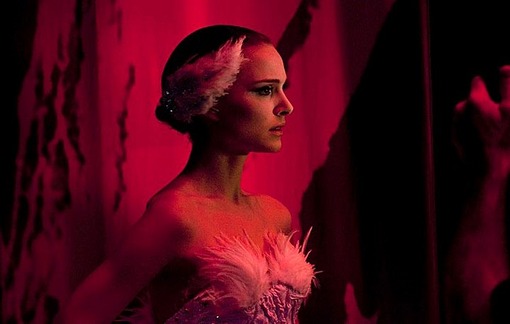I enjoyed Darren Aronovsky’s “Black Swan” as a kind of lurid 1970s drive-in exploitation horror movie (more “Carrie” than “The Red Shoes” or “Repulsion”) that wears its multifarious influences on its head like a tinfoil rhinestone tiara. (In fact, as I’ve said before, I found the Oscar-winning performance by Natalie Portman to be its weakest feature, though I ambivalently concede that, in the long run, it probably works in the film’s favor: she’s so exasperatingly one-note that when, at last, she becomes the Black Swan it’s not only a catharsis but a relief.)
But what, do you think, is the key to Nina’s late-blooming transformation? After all those missed opportunities to let loose, to grow up, what finally tips her over the edge? The drugs, the sex, the mom, the ballet director, the rivalry, the Dying Swan (Winona Ryder)? I haven’t seen much discussion of that. Maybe it’s obvious, but the answer, I think, is when her partner (and off-screen baby daddy, Benjamin Millepied) drops her on her patoot. And not just because it gives her a much-needed bump on the noggin at the same time — though that, psychologically speaking, no doubt helps, too. What she finds, perhaps, is something like what the Japanese call “wabi-sabi,” the understanding that “nothing lasts, nothing is finished, and nothing is perfect.”
All through the picture, Nina is obsessed with achieving “perfection.” In the end, she believes she’s found it, albeit with a shard of mirror glass puncturing the illusion of seamlessness. But, of course, the flaw — the risk, even the failure — is what finally lifts her performance beyond the calculated sterility of “perfection” and makes it… perfect.











